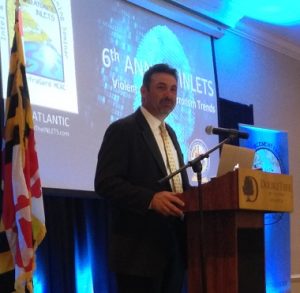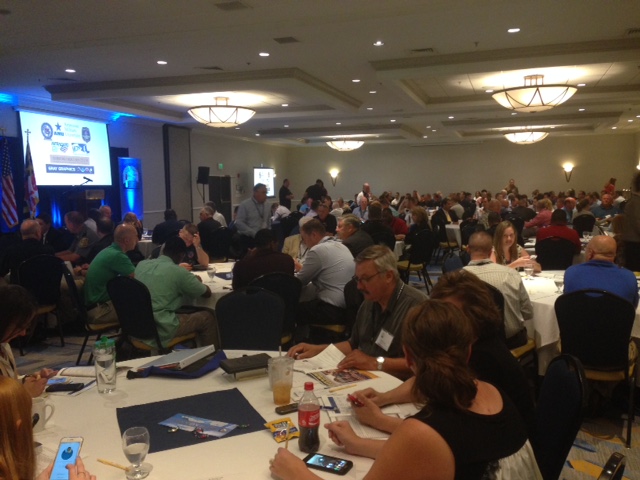By Leischen Stelter, editor of In Public Safety
The news is saturated with stories about mass killings and terrorist attacks around the world. Unfortunately, acts of mass violence are on the rise and — as so many events have proven — they can happen in any location and in any jurisdiction. Most police agencies include active shooter response as part of their training programs and some have even started offering active shooter training to civilians. But there’s no better way to learn about the challenges associated with responding to a mass shooting than from those who have experienced them firsthand.
On June 20-24, more than 250 law enforcement, intelligence, and government professionals attended the 6th annual Mid-Atlantic INLETS: Violent Crimes & Terrorism Trends in Annapolis, Maryland to learn what it’s like to respond to a terrorist or an active shooter event. The INtel & Law Enforcement Training Seminar (On the INLETS) is a collaborative effort between the FBI, the Maryland Coordination and Analysis Center (MCAC, the state fusion center) and InfraGard, a 501(c)3.

“As we go through this week, we have nothing good to share with you. It’s all heavy. It’s going to resonate with you and we hope you leave here being better prepared and informed about how to handle a mass casualty event should it happen on your watch,” said Steven Shepherd, Special Agent with the FBI and the lead organizer of INLETS.
The week-long seminar delivered on Shepherd’s promise. The case studies focused on active shooter and terrorist events around the country. Presenters were all police commanders or officers involved in these incidents who provided in-depth analysis about the response. The most beneficial aspect of INLETS’ educational sessions is that presenters are not trying to prove that their agency’s response was perfect. All officers expect there to be chaos and unanticipated challenges during an active shooter event. So instead of justifying actions, presenters focus on sharing mistakes and lessons learned so that other agencies can better prepare for the reality of responding to a similar event.
Many presentations given at INLETS are law enforcement-sensitive and cannot be published on the Internet. However, several presenters were generous enough to allow American Military University, a sustaining sponsor of the event, to publish overviews of their presentations.
Those who were unable to attend the event can still learn from three officers who responded to the Isla Vista, California mass shooting where a shooter targeted a dense college town, killing six people and wounding fourteen others. These officers, including the commander in charge of the response, discussed the challenges the agency faced in establishing a command structure, managing and processing 17 crime scenes, and handling the media.
Another popular session was a presentation by a profiler and crime analyst with the FBI Behavioral Analysis Unit who presented an in-depth psychological analysis of two offenders who targeted and murdered two Las Vegas Metropolitan police officers in 2014. The BAU presenters provided a psychological autopsy of the perpetrators to help police officers understand personality characteristics, behavioral indicators and warning signs. They also offered insight into how those types of killers could be identified earlier by police and stopped.
Other presentations discussed tactics for developing criminal informants, learning about outlaw motorcycle gangs, understanding strategies of sovereign citizens, ISIL and international terrorism, using social media in crisis events, and many more. Review the full INLETS agenda for a list of all presentations.
Attendees also heard an inspiring keynote address from Robert O’Neill, the team leader for SEAL Team 6 who is widely known for firing the shots that killed Osama bin Laden. O’Neill shared his philosophy to “Never Quit,” the mindset for staying mentally and physically tough to get him through SEAL training. He also shared the importance of learning how to minimize self-induced stress to help him perform during intense and life-threatening situations.
The next seminar will be the 2nd annual Gulf Coast INLETS in New Orleans, Louisiana on February 27 – March 3, 2017.

Comments are closed.